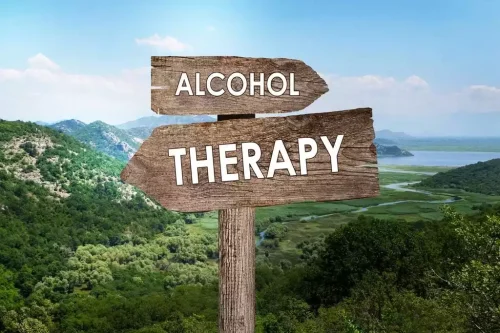
You’ll meet hundreds of fellow Reframers in our 24/7 Forum chat and daily Zoom check-in meetings. Receive encouragement from people worldwide who know exactly what you’re going through! You’ll also have the opportunity to connect with our licensed Reframe coaches https://ecosoberhouse.com/ for more personalized guidance. The Reframe app equips you with the knowledge and skills you need to not only survive drinking less, but to thrive while you navigate the journey. Our daily research-backed readings teach you the neuroscience of alcohol, and our in-app Toolkit provides the resources and activities you need to navigate each challenge. Aside from quitting or cutting back on alcohol, we can boost our longevity by reducing stress, eating a balanced diet, exercising, and maintaining meaningful relationships.

Immediate Health Risks of Alcohol Consumption

When considering the connection between alcoholism and life expectancy, it’s important to understand the causes of alcohol-related deaths. According to WebMD, more than half of alcohol-related deaths are caused by health problems that come from heavy drinking over time — liver disease, cancer, or heart disease especially. In cases like this, death by alcohol from end-stage alcoholism was the overall cause.
Do most adults in the US drink every day?

A large percentage of people who die by suicide drank heavily right before they died, and many people who committed violent crimes were drunk at the time. But many of the people who eventually die due to alcohol-related causes die from a disease, such as cancer or liver damage or failure, that came about because of years or decades of heavy drinking. It’s important to remember that alcoholism is devastating, but help is available from top alcohol rehabs in California like Resurgence Behavioral Health.
- According to statistics, the risk of suicide among alcoholics is 2 times higher than in sober people.
- The final stage of an alcohol use disorder is end stage alcoholism, which results from years of alcohol abuse.
- You could also consider trying alcohol-free alternatives, like non-alcoholic beers or mocktails, as a way of reducing psychological cravings.
- Alcohol can also impair sleep quality, and studies show the less sleep a person gets, the higher their risk of getting sick.
Is any amount of alcohol safe?
With 27% of people experiencing homelessness stating that drugs or alcohol was a contributing factor – it is clear how this impacts overall life expectancy 29. Those who drink alcohol excessively are also much more likely to suffer from social problems, including unemployment, domestic abuse, and homelessness which can lead to poor nutrition and living in high-risk environments 26. Patients admitted to the hospital are also much more likely to exhibit violent, reckless behaviour, with some chronic drinkers even exhibiting suicidal how long do alcoholics live behaviour due to developing mental health disorders 9. Research suggests that there is a positive correlation between alcohol use disorder and cardiac disease, accounting for over 30% of deaths 17. The average lifespan in the UK is 81 years old, whereas the overall average lifespan of an alcoholic is 52 years old 2 3.
How Alcohol Consumption Impacts Lifespan
- They found no evidence to support the notion that light consumption of red wine can improve heart health.
- The individual in end stage alcoholism will experience serious mental and physical conditions, including possible life-threatening health conditions.
- It should be noted that the regular drinkers in Table 1 includes the ex-drinker group because the portion of ex-drinker was very small (3%) but the hazard ratios were large and were comparable with regular drinkers.
- The alcoholic life expectancy calculator takes into consideration a number of factors (such as your Age, Gender, Country, Drinking Frequency, Drinking Starting Age).
For example, cancer makes up the highest proportion of alcohol-attributed deaths in the over-50s, while alcohol-related road injuries and self-harm are more common in those aged 15-49. Understanding the relationship between alcohol and longevity is the key to finding a balance between drinking and living a long, healthy life. An analysis of 592 studies found that mortality rates of all causes rise with increasing alcohol assumption—and the only level of consumption that minimizes the risk across all health outcomes is zero (3). Another way in which alcohol affects life expectancy is by increasing the risk of cancer. While cancer isn’t always fatal, it’s the second most common cause of death in the US—and alcohol is estimated to contribute to around 75,000 cases and 19,000 deaths each year (12).
Mental Health Resources

This systematic review and meta-analysis included 107 studies on alcohol use and all-cause mortality published between 1980 and 2021. This systematic review identified 98 studies examining the relationships between alcohol, smoking, weight, and mortality. This systematic review investigated potential biases in observational studies that reported benefits from low-volume alcohol consumption. If you consume habitually, it is not only the liver marijuana addiction that hurts, but also the heart and cardiovascular system as a whole.
- Specifically, alcohol temporarily increases levels of serotonin and dopamine, our brain’s “feel-good” hormones, which is why we initially feel a sense of euphoria or pleasure when drinking.
- However, the long-term effects of alcohol addiction on an alcoholic’s life expectancy are often overlooked.
- An individual with an addiction to alcohol will move through the stages of the disease as they continue to drink and drink larger quantities.
- While alcohol is not the only cause of pancreatitis, heavy drinking can cause both chronic and acute pancreatitis.
- The relationship between alcohol and breast cancer has been particularly well-studied, with scientists theorizing that alcohol may increase estrogen levels and therefore feed breast cancer.
